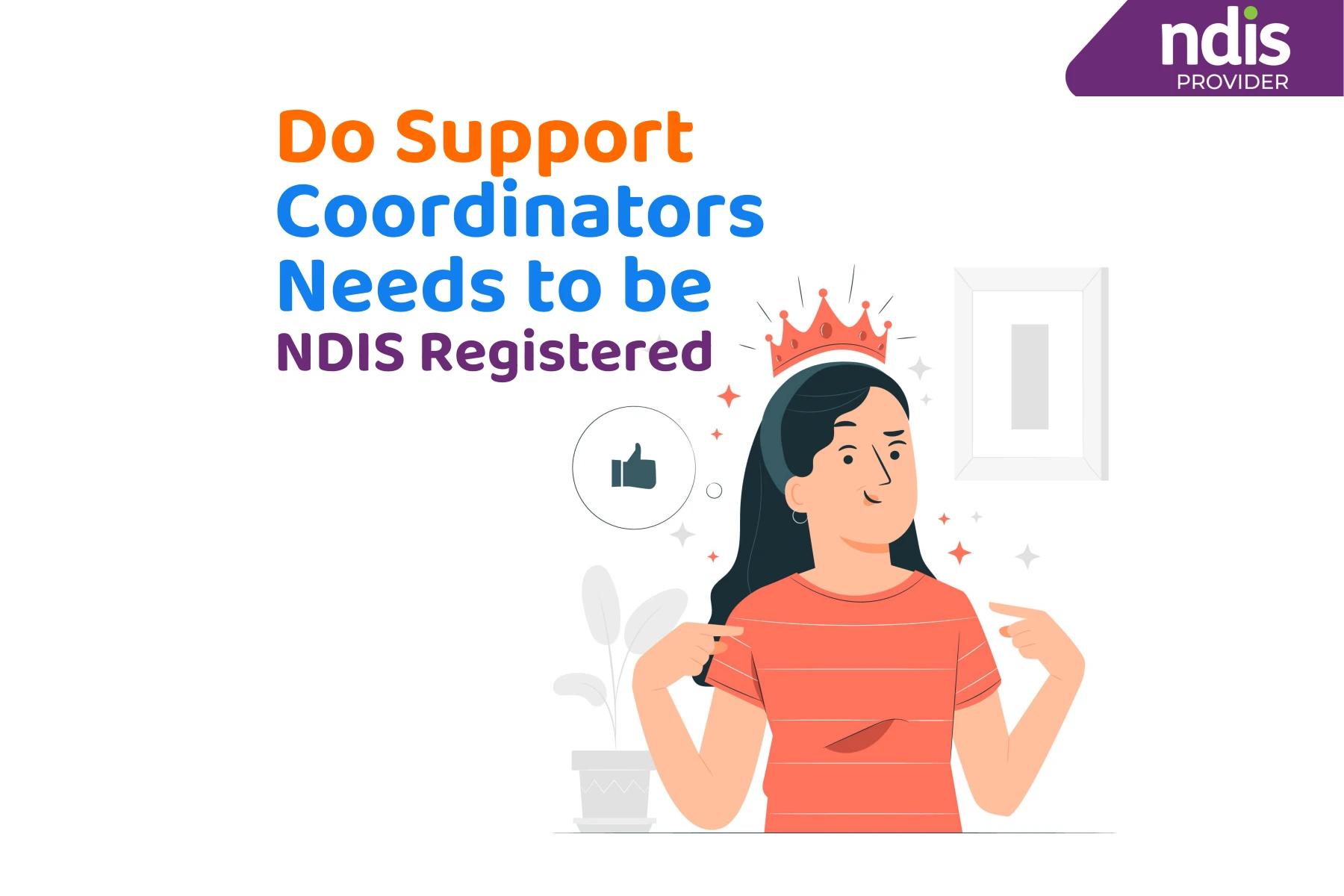

NDIS registration for support coordinators isn’t mandatory, but is highly advised as it demonstrates commitment to uphold quality and safeguard standards within the program.
Registering as an NDIS Provider Finder Tool online also enables participants to quickly locate you, building trust and increasing flexibility for both you and them.
What is a support coordinator?
Support coordinators assist participants to develop the abilities to navigate the National Disability Insurance Scheme (NDIS). This may involve helping them understand their plan funding, identify services that meet their needs, connect them to resources that can provide assistance and identify potential barriers that need to be overcome – all aspects that an NDIS support coordinator provides assistance for.
Registration with the NDIS isn’t mandatory for support coordinators, but it may prove invaluable in showing their dedication to upholding its standards and codes of practice, giving participants confidence in them as providers, and offering access to special resources and training designed just for them.
At the core of it all lies a participant’s choice for their support coordinator, but the National Disability Insurance Scheme can assist participants by using request for service forms to connect them with providers who accept these requests and agree on creating service agreements between themselves and participants. Furthermore, participants can change support coordinators at any time following notice periods set out in their contract with NDIS providers.
Support Coordinators may also be asked to monitor a participant’s plan budget and effectiveness, to make sure funds are being spent appropriately according to their goals.
What is the role of a support coordinator?
Support coordinators play an essential role in aiding participants as they implement their NDIS plans, helping them understand how best to utilize them, finding providers, services and activities that will assist in meeting their goals while quickly responding to any concerns that may arise. Furthermore, their clients should feel satisfied with the services provided.
Support coordinators must be adept at communicating openly and respectfully with both clients and service providers, and be open to working collaboratively. In addition, they must possess exceptional organizational abilities allowing them to plan and manage their time effectively as well as identify client needs accurately while making educated decisions regarding services provided to their clients.
Support coordinators must also be willing and comfortable traveling to visit clients, working with people from various cultural backgrounds, and helping their clients identify and pursue their most meaningful goals.
How does a support coordinator work?
Support coordinators assist participants to navigate the National Disability Insurance Scheme (NDIS). A support coordinator may assist participants in exploring living arrangements they prefer and finding providers compatible with their circumstances and preferences, liaising between NDIS and service providers to resolve issues as necessary and ensure services are being properly delivered.
An integral component of being a support coordinator lies in building relationships with participants, understanding their individual needs and capabilities, as well as helping them identify informal community, government, or funded supports that can assist with meeting their goals.
Registering as a support coordinator with the NDIS is vitally important to gaining credibility and building trust with participants and service providers, while showing that the NDIS has assessed his or her skills, knowledge and experience.
At the same time, it’s important to note that support coordinators can work with participants who have self-managed plans without being NDIS registered. Non-NDIS registered support coordinators must pass both a police verification and working with children check before working with these participants. To find out more on becoming a registered support coordinator with the NDIS Commission’s website and discover step-by-step guides and other resources which will assist your journey – the best place to start would be collecting prerequisite documents such as an Australian Business Number (ABN), police verification certificate, and working with children check certificate certificate before commencing any activities with participants with self-managed plans.
What are the qualifications required to be a support coordinator?
Support coordinators must be adept at communicating effectively with participants and stakeholders, working effectively as part of a team, and possessing effective conflict resolution abilities. Furthermore, they should possess a comprehensive knowledge of the National Disability Insurance Scheme policies.
Support coordinators must possess certain qualifications, but it is also crucial that they are comfortable working with vulnerable individuals, particularly if providing specialist support coordination services designed to assist participants with complex needs manage their challenges more easily.
People interested in becoming support coordinators have several educational options available to them. A person may take on vocational courses like Certificate III in Individual Support (Ageing, Home & Community) or Disability Services through TAFE or other training providers; alternatively they could pursue a diploma or bachelor’s degree in one of many allied health fields such as Psychology, Education, Occupational Therapy Speech Pathology Social Work.
No matter their formal qualifications, all supports coordinators have an obligation to promote the safety and wellbeing of their participants. This means being able to identify risks or concerns that arise for participants and report these to either their employer or NDIS as soon as possible. They must also connect them to informal support networks as well as community services if required.
 RISU Care acknowledges Aboriginal and Torres Strait Islander people as the Traditional Custodians of the land and acknowledges and pays respect to their elders, past and present.
RISU Care acknowledges Aboriginal and Torres Strait Islander people as the Traditional Custodians of the land and acknowledges and pays respect to their elders, past and present.
Copyright © All Right Reserved | Powered by Chillitrends Digital